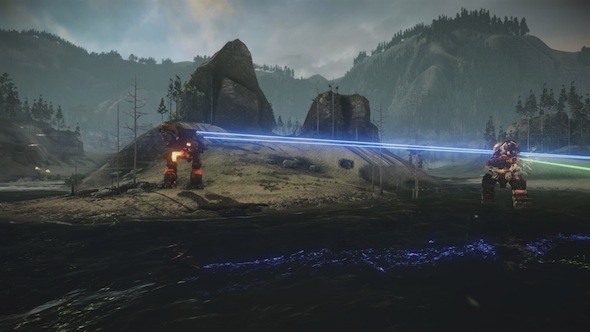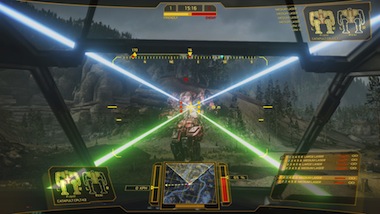Zmak: We might eventually get to $50 million or $60 million in development, but it’s $50 million or $60 million targeted to what the consumer base is looking for, asking for, and wants. Not based off a game design. That’s the reason I left my studio in 2010 to enter this space, because I see this as a sunrise of our industry. I don’t think it’s gonna eclipse the other industries, the other parts of the business. I think they’ll just settle into their respective roles. There’s good money to be made in all parts of the business.
This is one of those [times] right now where I’m obviously trying to convince my investors, “This is a great place!” But in order to do that, we have to demonstrate that to the gamers — we have to demonstrate that to our audience. And I’ll even go one step further: That’s why you haven’t heard a lot about IGP. Because until we have the products to show, what are we gonna say? I’m sure my users are interested in my business model, but it’s not nearly as exciting to them as the product.
GamesBeat: Because it’s really this transition to games-as-a-service model, rather than shipping it as a boxed product.
Zmak: Yeah, it is a service model, and that’s a big shift. And [Piranha Games] has done an awesome job at actually making that mental shift. We as an organization have set up our infrastructure to manage that process. Initial feedback’s been real positive. And I think all of that really worked for us. I think, like every other business, we need to stay true to what we started with: And that’s focus on the consumer, focus on the game. And the rest of it will fall into place.
GamesBeat: What do you think of the Ouya console and its emphasis on F2P games? Is that something IGP has been paying attention to? [Editor’s note: this interview took place prior to the closure of the Ouya Kickstarter campaign.]
“I’ve got a huge opportunity in the Windows PC business. Let’s make that sing.”
Zmak: We’ve been watching it. As a startup, every opportunity is unique and interesting, but at the same time, we need to stay true to the core model that we laid out. If I can, and this is my kind of philosophy, and the one I’ve been sharing with my partners and developers: If we can deliver on what we set out to do on the PC in the current market, achieve the quality standards that we’ve set for ourselves, every other business opportunity becomes available to us.
But to fracture that focus now would jeopardize our entire business model. So I think it’s fascinating. Yes, I’m very interested in it, and I’m watching all of the business models closely. [But] I’ve got a huge opportunity in the Windows PC business. Let’s make that sing. There are millions of players out there waiting to participate in this game right now.
And they have the hardware and the equipment to do it. And we don’t need to go anywhere else to find that audience, so let’s not go there right now.
GamesBeat: So it’s more about establishing your games first and then eventually branching out.
Zmak: Right. And then opportunity presents itself based off growth, [which] can in fact then be measured. We’ve got a relatively small development team with Piranha focused on this core product. You’ve got your to-do list and your not-to-do list. Everything you do with your not-to-do list is as important as what’s on your to-do list. And that’s the balancing act: It’s prioritization; it’s focus; it’s understanding what’s important to the game. It’s understanding the quality standards that are there.
And it’s understanding the consumer service we need to provide on the backend. And are we achieving that, measuring it, and balancing that. That right now is our focus.
GamesBeat: It seems all the bigger players in the industry are just taking a wait-and-see approach when it comes to investing into the F2P space. Like seeing whether the Ouya console will actually have some kind of foothold and traction with a broad audience.
Zmak: I look at the large retail players and I think for the context that they’re in, and having worked in many of those companies and understanding the philosophies in which they approach, the first thing I’ll say: There are some really smart business guys there. You don’t walk away from a billion-dollar business in order to chase a business that’s going to bring in $50 million. So they’re stuck in that middle ground. They’re also challenged with this business model that I was just describing, this agility, this fast pace, this focus on a MVP concept — minimum viable product concept.
It’s a big shift for them to go through. But to be honest, I have no doubts that they’ll be there. And they’ll embrace it as part of their business models. And I think in North America, downloadable content on the consoles is merely one step toward a F2P model. It really is just an evolution. You’ve seen some phenomenal success with Activision. You’ve seen some phenomenal success with Electronic Arts. And they’ve got a lot of really smart guys working on this stuff.


